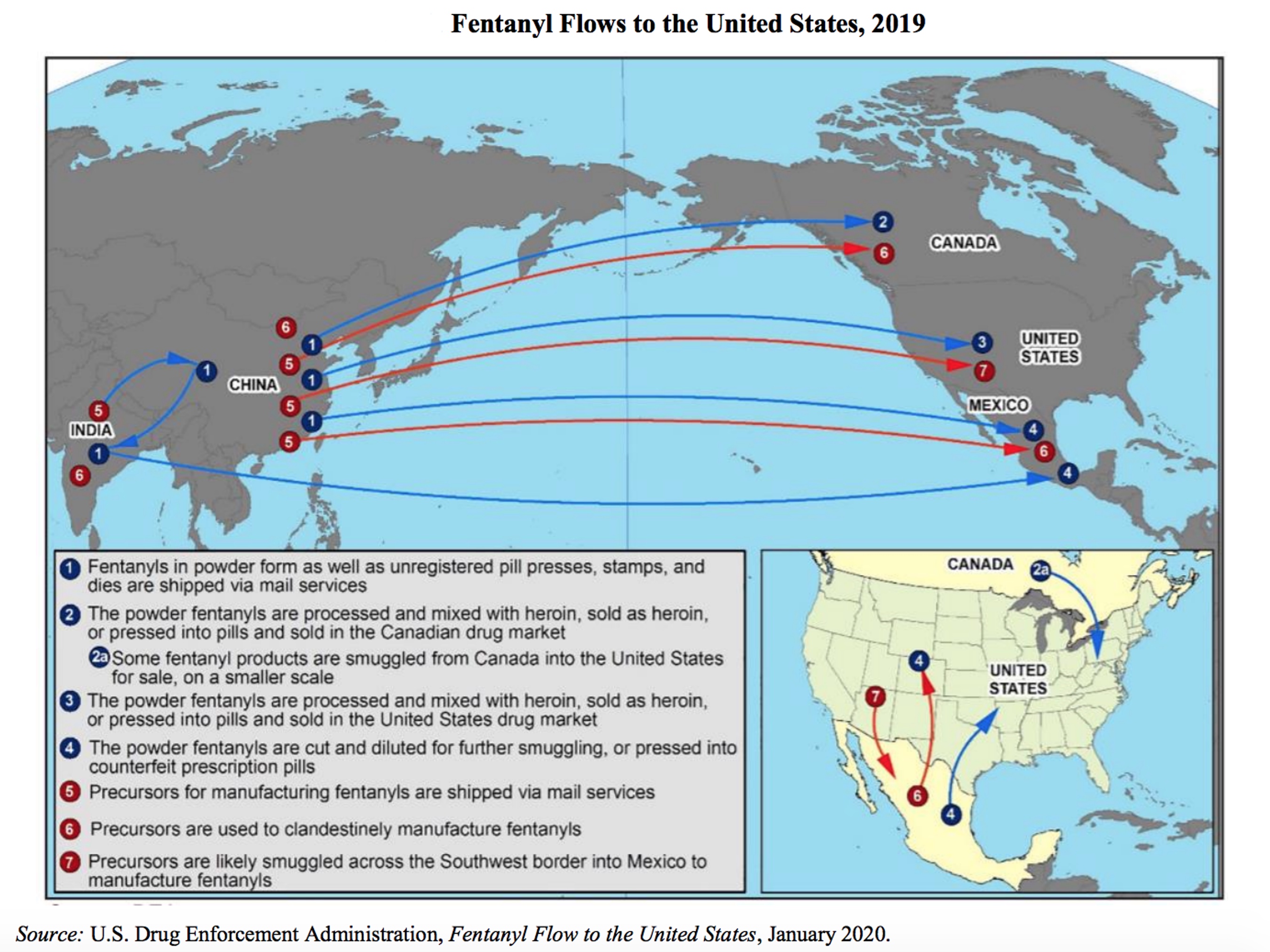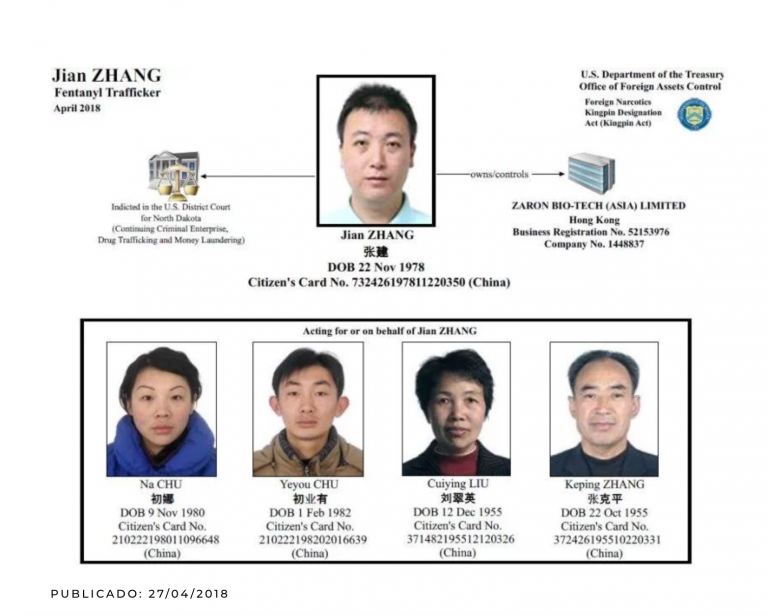A Chinese fentanyl trafficker who was the leader of a transnational drug trafficking group illegally trafficked fentanyl, causing four deaths and five injuries in the United States.
On Aug. 30, the U.S. State Department offered a reward of up to $5 million for information leading to the arrest, location and/or conviction of People’s Republic of China (PRC) national Jian Zhang, a key leader of a transnational criminal organization who is wanted for trafficking fentanyl.
According to the State Department, Zhang’s organization imported and distributed controlled substances and their analogues into the United States that led to the overdose deaths of four Americans in North Dakota, Oregon, North Carolina, and New Jersey and serious bodily injuries to five other Americans.
The crimes were committed behind 2013 and 2016, with Zhang charged as the principal leader and organizer.
Zhang was charged in North Dakota in January 2018 along with several other U.S., Canadian, and PRC nationals. Several of the U.S. nationals have been convicted and sentenced to penalties ranging from 20 years to life. This investigation led to charges which include drug trafficking, trafficking of illicit drugs which led to death and/or serious bodily injury of Americans, violations of the Continuing Criminal Enterprise statute, and international money laundering.
Success
You are now signed up for our newsletter
Success
Check your email to complete sign up
The State Department reward is offered under the Department of State’s Transnational Organized Crime Rewards Program (TOCRP). More than 75 transnational criminals and major narcotics traffickers have been brought to justice under the TOCRP and the Narcotics Rewards Program (NRP) since 1986. The Department has paid more than $135 million in rewards to date.
On August 24, 2021. U.S.-China Economic and Security Review Commission(USCC) issued a report finding that “China remains the primary country of origin for illicit fentanyl and fentanyl-related substances trafficked into the United States.”
In 2019, China fulfilled a pledge to the United States and placed all forms of fentanyl and its analogues on a regulatory schedule. Nevertheless, illicit fentanyl from China remains widely available in the United States. China’s weak supervision and regulation of its chemical and pharmaceutical industry also enable evasion and circumvention.
The USCC report said since China’s government scheduled fentanyl, the amount of finished fentanyl shipped directly from China to the United States has declined, but quantities shipped from Mexico have increased. The U.S. Drug Enforcement Administration (DEA) assesses Chinese traffickers have shifted from primarily manufacturing finished fentanyl to primarily exporting precursors to Mexican cartels, who manufacture illicit fentanyl and deliver the final product.
The Treasury sanctioned Chinese Fentanyl Trafficker Jian Zhang on April 27, 2018. The U.S. Department of the Treasury’s Office of Foreign Assets Control (OFAC) identified Jian Zhang as a Significant Foreign Narcotics Trafficker pursuant to the Foreign Narcotics Kingpin Designation Act (Kingpin Act).
In addition, OFAC designated four key financial associates additional Chinese nationals – Na Chu, Yeyou Chu, Cuiying Liu, and Keping Zhang – acting on behalf of Jian Zhang and Zaron Bio-Tech (Asia) Limited, an entity registered in Hong Kong that is owned or controlled by Jian Zhang, which is registered in Hong Kong but operates out of the Shanghai region of China. The company produces food additives and allegedly operates several factories in China, Vietnam, Thailand, and Singapore.
OFAC announced that the four key financial associates of Zhang designated conducted financial transactions through money service businesses to launder illicit narcotics proceeds for Zhang and his organization, which shipped or arranged for the shipment of fentanyl and analogue controlled substances to the United States.
The CDC estimates that in the United States, there were more than 93,000 drug overdose deaths in 2020, of which an estimated 69,710 were opioid overdoses. overdoses. This is a more than 30 percent increase from the 50,963 opioid overdoses registered in 2019.

(Photo from U.S.-China Economic and Security Review Commission Issue Brief August 24, 2021)
















